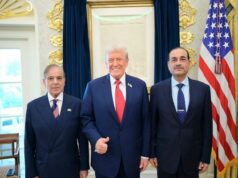What should one read into the disclosures by The Washington Post about the role of certain people in India’s intelligence establishment vis a vis Khalistan separatist Gurpatwant Singh Pannun?
Indian diplomats who have served in Washington DC, believe the US State Department may have had a role in this. Sections of the department are known to be unhappy with the so called “free pass” given to India, and therefore these motivated, unsubstantiated leaks.
Throwing in the names of NSA Ajit Doval and former RAW chief Samant Goel is to lend more credence to The Washington Post report . But these are not necessarily shared by the defence and security establishment that see India as a key player against China. Not even the White House is paying attention to these reports.
As for Khalistan, the view among a cross-section of India’s former spooks is that “It’s a nuisance not a threat. It has no resonance in Punjab. As for the Anglo-Saxons (US, UK, Canada etc), Khalistan is a tool to be used against us. They figure in an election year, it could be useful against Modi.”
The sense is the British are probably the key players, advising the Americans on which card to use against India and when.
“They think they know us,” said a former senior intelligence officer, “and pressing buttons like the Khalistani one will get India to react or respond in a manner helpful to their interests.”
Exactly what they hope to gain is not clear. Perhaps an admission of some kind that would confirm their claims about India targeting Khalistani separatists, India lining up with them against Russia on Ukraine, or buying more US military hardware.
Even the Australians have got into the act, albeit more cautiously. Canberra’s expulsion of two unnamed foreign intelligence agents three years ago, is being discussed in the local media today, with some claiming those expelled were Indians.
But the Australian government would not confirm that. Treasurer Jim Chalmers was quoted by in a BBC report as saying “I don’t propose to get into those stories. We have a good relationship with India. It’s an important economic relationship. It’s become closer in recent years as a consequence of efforts on both sides.”
Thirty eight years in journalism, widely travelled, history buff with a preference for Old Monk Rum. Current interest/focus spans China, Technology and Trade. Recent reads: Steven Colls Directorate S and Alexander Frater's Chasing the Monsoon. Netflix/Prime video junkie. Loves animal videos on Facebook. Reluctant tweeter.




